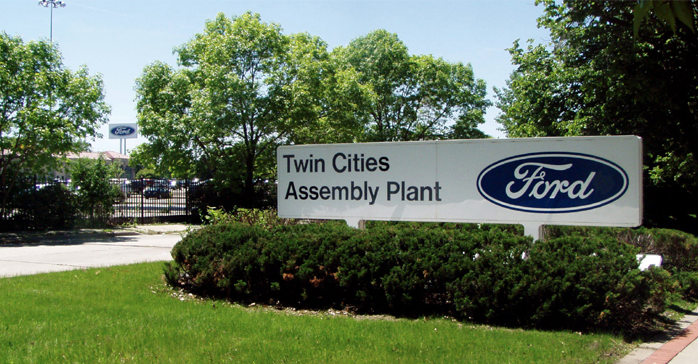Plans for an ambitious net-zero village on the site of the former Ford Twin Cities Assembly Plant in St. Paul, Minn., have generated extensive support among environmentalists.
The development would become one of the first net-zero energy communities in America, with all the power consumed generated from renewable sources on site. The neighborhood would use one of the first aquifer thermal energy storage systems in the U.S., which would pump groundwater from aquifers to heat and cool buildings.
Opposition from a group organized by neighbors in the adjoining Highland Park village of mostly single-family homes is centered on concerns over traffic, a change to the neighborhood’s character, and the threat of environmental pollution at a nearby dump site. A rival grassroots group emerged last summer to support the plan.
The debate often broke along generational lines, with older people opposed to the project and younger people interested in living there. The city council has voted to reduce height limits for new residential construction from 10 stories to six.
Related Stories
| Nov 29, 2012
Government policies help accelerate adoption of green building
Green procurement policies or green building mandates can help accelerate the adoption of green building practices, according to research by Timothy Simcoe and Michael Toffel.
| Nov 26, 2012
Minnesota law to spur development, job creation produced few jobs
Legislation that allowed local governments to direct excess property tax dollars from tax-increment financing districts into other private developments was supposed to kick-start construction hiring in Minnesota.
| Nov 26, 2012
How to boost resilient systems that are sustainable
Cities of the future can be both more resilient and more sustainable by promoting strategies that include solar power and green roofs, programs that minimize demand for energy, rain gardens, and permeable pavement.
| Nov 26, 2012
Developer of nation’s first LEED platinum skyscraper focuses on carbon reduction
The Durst Organization, the developer of the first LEED platinum certified skyscraper in the country, says it will not seek LEED certification for its residential pyramid planned for New York’s West 57th Street.
| Nov 26, 2012
Questions linger over ability of Miami's newer high-rises to withstand hurricanes
Some towers in Miami, rebuilt after a hurricane in 2005, were allowed to be constructed under older building codes instead of newer ones created after Hurricane Wilma.
| Nov 26, 2012
Changes in development and building standards needed for health of Potomac River
The Potomac River’s health stands to suffer if the region does not change its development and building standards, according to the Potomac Conservancy.
| Nov 16, 2012
South Dakota prefers LEED over building code on state projects
“(LEED is) much better than a mandatory building code because you get a little wiggle room in these projects,” said Mike Mueller, a spokesman for the South Dakota Bureau of Administration.












